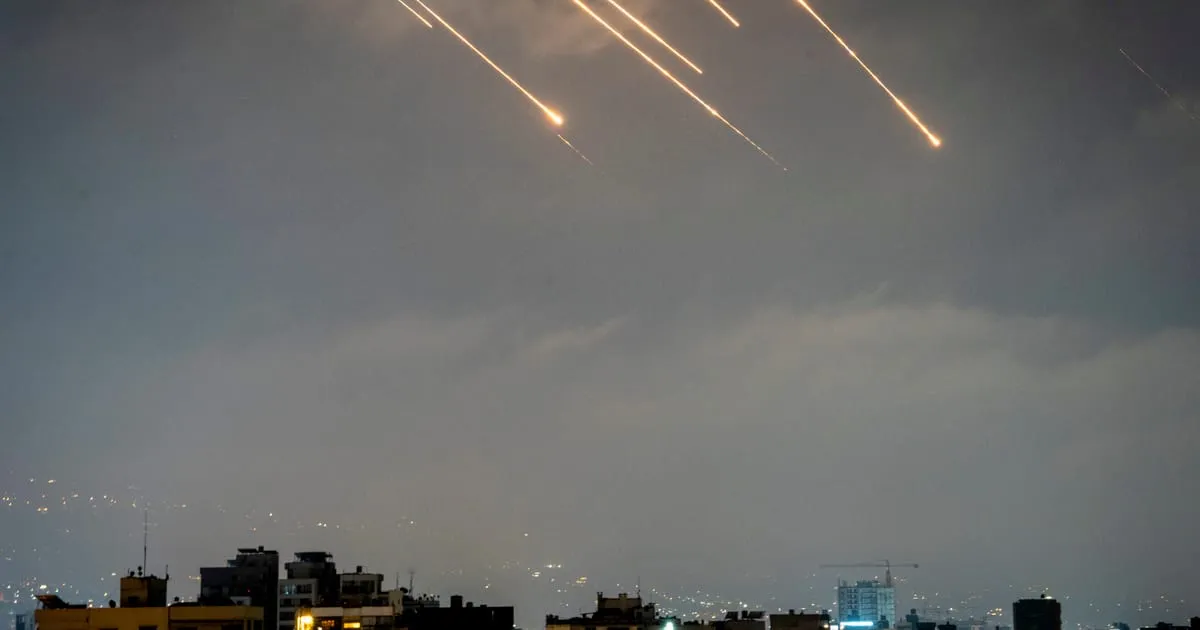
LONDON — As tensions rise in the Middle East, the potential for a military conflict involving Iran looms large. With Donald Trump on the verge of ordering a bombing raid on Iran’s underground nuclear facilities — a move reportedly encouraged by Israel — the question arises: who can effectively intervene to halt the escalating Iran war? The answer seems unlikely to be found in the hands of three European foreign ministers and an Estonian politician, designated as the EU’s high representative for foreign affairs and security policy.
Despite the daunting situation, the foreign ministers of Germany, France, and the U.K., alongside Kaja Kallas, the former Estonian leader, are set to engage in emergency discussions in Geneva this Friday with Iranian representatives. This urgent diplomatic effort represents a last-ditch attempt by European governments to de-escalate the week-long conflict between Israel and Iran before it escalates further, particularly if the U.S. takes military action.
On Thursday, the White House provided a glimmer of hope for European officials, announcing that Trump will decide within the next two weeks whether to pursue military action. He expressed a belief that “there’s a substantial chance of negotiations,” implying a potential window for renewed diplomatic efforts. This extended timeframe may afford the upcoming talks in Switzerland greater significance.
Joining Kallas in Geneva will be the foreign ministers of Germany and France, while British Foreign Secretary David Lammy will travel directly from discussions with U.S. Secretary of State Marco Rubio in Washington. The Iranian delegation will be led by Foreign Minister Abbas Araghchi. The central question remains: can the European ministers make any substantial progress?
The current crisis starkly illustrates the diminished geopolitical influence of Europe, particularly under Trump's administration. In 2015, the European powers, known as the E3, played a pivotal role in negotiating the Joint Comprehensive Plan of Action (JCPOA), the prior nuclear deal with Iran. However, the U.S. withdrawal from the agreement in 2018 has left Europe struggling to assert its voice on issues regarding Iran.
Moreover, European powers, including the U.K., have found it challenging to exert influence over Benjamin Netanyahu's far-right government in Israel, particularly following the recent Hamas attacks on October 7, 2023. European officials are keen to provide Trump with an alternative route away from military engagement, given the threats he has made against Iranian leadership and nuclear facilities.
Despite the escalating rhetoric, some European diplomats believe there are factors holding Trump back from immediate military action. A European diplomat noted, “We must not underestimate how much Trump hates war.” Former MI6 chief John Sawers echoed this sentiment, stating that Trump would have preferred Israel not to initiate direct conflict with Iran.
With heightened tensions, the urgency of resuming talks with Iran aims to ensure that Tehran utilizes its nuclear program solely for civilian purposes. However, there are concerns that the ongoing Israeli military activities may hinder these negotiations.
While French President Emmanuel Macron seeks to position himself as a peacemaker, expectations for a definitive resolution from the Geneva talks remain low. Instead, the meeting may primarily serve as a platform for conveying Iranian intentions regarding their nuclear program to the U.S.
Interestingly, it is not Iran that needs convincing to cease hostilities; rather, it is Trump who is crucial in determining the course of action. Recent statements indicate that he is inclined to align with Netanyahu's requests to dismantle Iran's nuclear capabilities.
As discussions unfold, the complexities of U.S.-U.K. relations add another layer to the situation. Prime Minister Keir Starmer faces the challenge of balancing his desire to maintain close ties with the U.S. while also advocating for a cessation of hostilities. Trump's domestic audience, particularly his MAGA supporters, further complicates the landscape, as they are generally opposed to foreign military interventions.
In conclusion, while the prospects of achieving a diplomatic breakthrough in Geneva appear slim, the current situation does present a window of opportunity for meaningful dialogue. Ironically, the European alliance that Trump has weakened may inadvertently assist the anti-war faction within his own base, providing him with a rationale to avoid military action against Iran.
Clea Caulcutt reported from Paris, with contributions from Nette Nöstlinger in Berlin, Gabriel Gavin and Nicholas Vinocur in Brussels, Josh Berlinger in Paris, and Esther Webber in London.